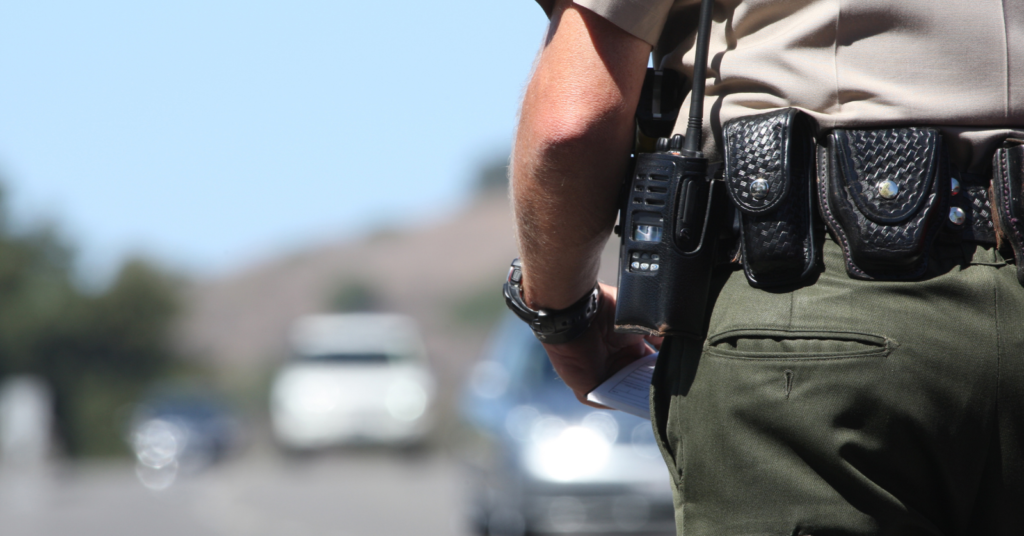Iowa law enforcement would have greater freedom to commit “clearly egregious” conduct and protesters could be more likely to be struck by cars, according to legislation passed by the Iowa House of Representatives on Wednesday evening.
Rep. Jarad Klein introduced an amendment reinserting language from Senate File 476, also known as the “Back the Blue” bill.
With that amendment, Klein added language relating to qualified immunity, increased penalties for protesters and less liability for people who hit protesters with cars—a right-wing, counter-protest strategy employed since 2015 which has increased, especially since the 2017 death of Heather Heyer in Charlottesville, Virginia.
The amended bill—SF 342—passed the House 63-30, with seven representatives absent or not voting.
There are benign things in the bill before the amendment, dealing with insurance and compensation. But once the language from SF 476 was added, the tone changed.
The qualified immunity standard changed to match the federal standard. Now, law enforcement is protected from individual liability unless they violated a “clearly established law,” as established in a previous case.
That language is controversial and has been criticized by groups from every side of the political or ideological spectrum, from the NAACP to the Yale Law Journal to the Cato Institute.
“So even if an officer uses clearly excessive force in violation of department policy, they are immune just because there hasn’t yet been a court case deciding that this exact conduct violates the law,” said Rep. Christina Bohannan, a professor at the University of Iowa-Law.
She pointed out that the Iowa Supreme Court rejected that standard in 2018 because it puts too much weight on the law’s clarity, and not enough on the wrongdoing.
“Making law enforcement officers immune from clearly egregious continuous conduct is going to further undermine public trust in law enforcement just at the time when we need to rebuild that trust.” – Rep. Christina Bohannon
“Making law enforcement officers immune from clearly egregious continuous conduct is going to further undermine public trust in law enforcement just at the time when we need to rebuild that trust,” Bohannan said.
The bill also increases penalties for behavior that was often seen during last year’s protests. From public property damage to insulting cops or demonstrating on streets or sidewalks.
Generally, Republicans defended the bill because the threat of being sued interferes with law enforcement’s ability to do their job.
Rep. Jon Thorup, a state trooper, told an anecdote about responding to a call with two other officers, and he talked about how they hesitated to take down a man with a knife because they were worried about being sued.
A few Republicans also said the threat of lawsuits and bad public perception have harmed the number of applicants to police forces. This bill, they argued, would make it easier and safer for police to do their jobs.
“It’s disappointing, as I look at the pendulum as it swings in law enforcement,” said Rep. McClintock.
He said even a couple years ago law enforcement officers were treated better than they are now.
In addition to pointing out the potential harm of the new elements, Democrats said they wished this bill were more like the bipartisan “More Perfect Union Act” signed last year.
That bill banned police chokeholds, made it illegal to rehire police fired for misconduct and allowed the Iowa Attorney General to investigate police misconduct.
Rep. Ako Abdul-Samad said this bill is too reactive, and it doesn’t have the coalition of support behind it that last year’s bill did.
He urged more conversation to bring together multiple perspectives.
“At some point we have to quit reacting and start sitting down to work together to be able to build,” he said.
Abdul-Samad said it’s especially important for bills that affect minority groups.
“I support law enforcement, but I also support communities that are in pain and that have suffered because we always react instead of getting proactive,” he said. “I hope we do sit down and we do talk with one another because we have a climate in this country that we don’t have control of right now. Not at all.”
